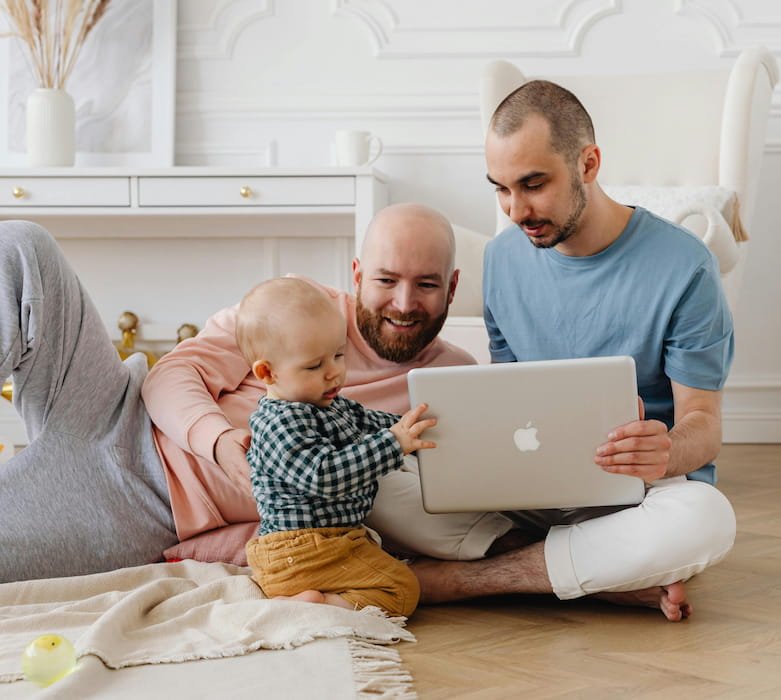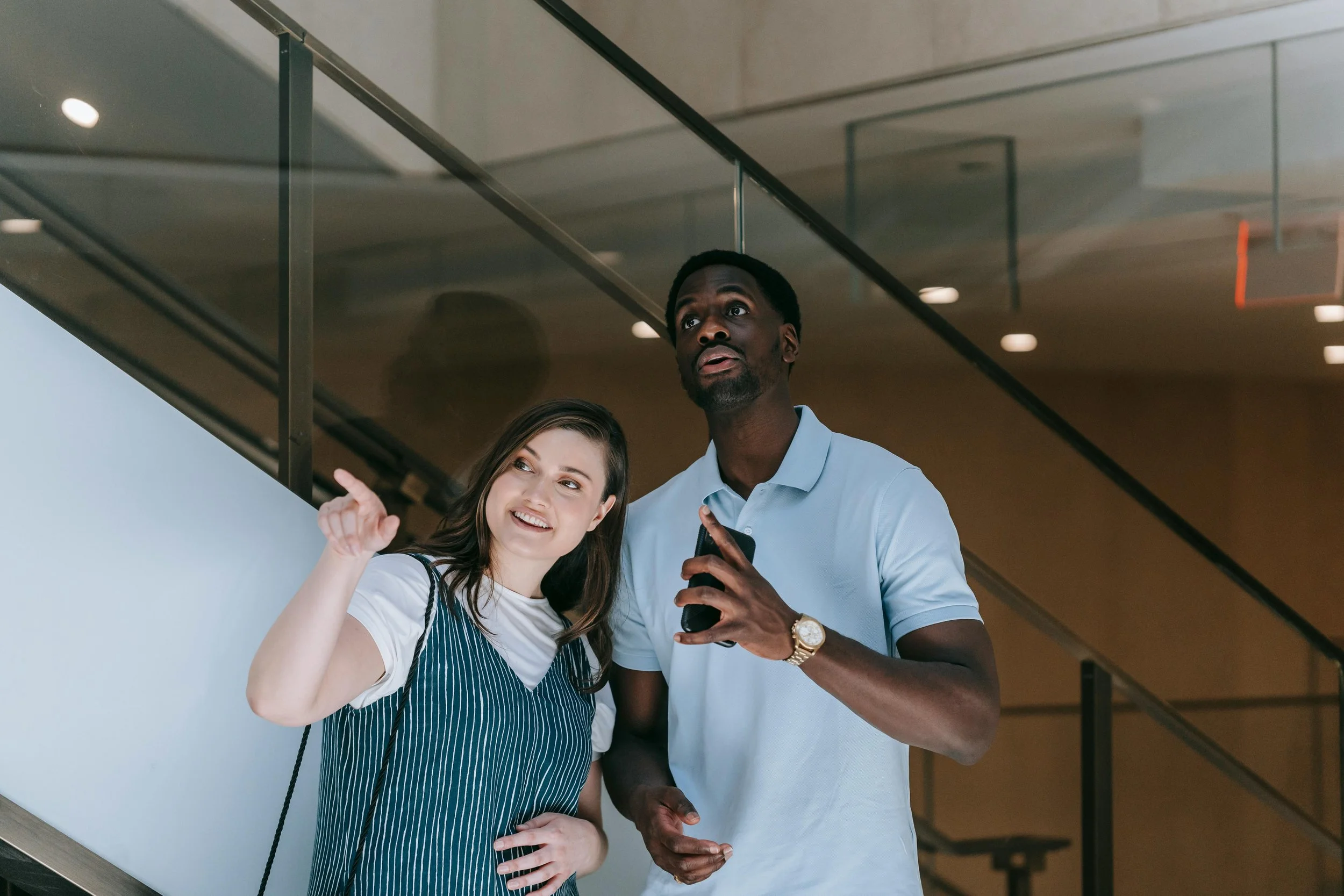
Relationship Counseling in San Francisco
Do You Worry That You’re Losing Yourself In Relationships?
Have you been longing for a closer connection with a romantic partner, yet find that you keep pushing each other away? Does it feel like you’re stuck in the same communication patterns, no matter how hard you try to change them? Are you afraid to let your partner or friends see who you really are because you worry that honesty and vulnerability might lead to rejection?
Perhaps you feel lonely even when you’re surrounded by other people or spending time with your partner. You may not know how to navigate the resentment or hostility that has built up between you and your partner, and the two of you may find yourselves repeating the same arguments again and again without resolution.
You’re not sure how to bridge the growing distance between you and your partner. The stress you’re carrying makes it harder to stay present in your responsibilities, and at times you might find yourself turning to harmful coping strategies—like substance use—to numb the intensity of your emotions. Unfortunately, these temporary escapes often deepen your sense of isolation and push you further away from the people you care about.
Have any questions? Send me a message!
You Might Fear That Being Authentic Will End Your Relationship
Maybe you feel that, in order to keep the peace in your relationship, you’ve had to compromise so much that your own desires have faded into the background. Over time, pushing your needs aside can make you lose sight of who you are.
At the same time, you may worry that being honest and assertive will push people away, leaving you feeling even more alone. These obstacles to intimacy can show up not only in romantic relationships, but also in friendships and family dynamics.
You do not have to settle for feeling disconnected or unfulfilled. Therapy can help you shift these patterns and build relationships grounded in mutual respect, clarity, and understanding.
Our Culture Upholds Unrealistic Expectations For Relationships
Lots of people struggling with relationship issues feel like they’re the only ones going through it. Unrealistic portrayals of love and connection on social media often intensify this belief. It’s easy to feel inadequate or dissatisfied when idealized images of romantic relationships, friendships, and families constantly surround you. Conflicts also tend to arise when partners hold different expectations shaped by traditional gender roles.
Today, many relationships are strained by a combination of stressors. In a place like San Francisco, demanding jobs, high living costs, and ongoing financial pressure can take a real toll on emotional and physical well-being. And while people in the Bay Area are more digitally connected than ever, long work hours and constant screen time often replace meaningful, in-person connection — creating emotional distance between partners.
Research consistently shows that chronic stress and poor communication are two of the strongest predictors of relationship dissatisfaction and conflict (Gottman Institute Research).
People Overlook The Root Causes Of Their Relationship Troubles
When someone is unhappy in their relationships, they often try to address the symptoms of the problem rather than the deeper emotional roots. For example, in a romantic partnership they might focus on avoiding arguments or improving their sex life, yet overlook how their family history or early experiences are shaping the way they communicate with their partner.
Even those who truly want to work on their relationships may hesitate to seek support, worrying that asking for help is a sign of weakness. Some people fear that needing therapy means their relationship isn’t meant to last. And because our culture places such a strong emphasis on individual success and self-sufficiency, many believe they should be able to resolve these challenges entirely on their own.
But core relationship skills — healthy communication, conflict resolution, emotional regulation — are not innate. By working on these skills with a therapist, you can build stronger, more trusting relationships without feeling the need to hide your feelings or silence your needs.
Relationship Therapy Can Help You Build Healthy, Genuine Connections
Relationship therapy isn’t only for individuals or couples in romantic partnerships. In my San Francisco-based counseling practice, I support people who want to strengthen many different types of relationships—including friendships, workplace dynamics, and family connections. Whatever relationships you’re hoping to improve, I can help you develop the tools and skills needed to create more fulfilling, authentic interactions across all areas of your life.
What To Expect In Relationship Therapy
I offer counseling to individuals as well as heterosexual and LGBTQ+ couples who want to strengthen their relationships. I’m passionate about supporting a wide range of relational dynamics, with a special focus on the LGBTQ+ community and on open or polyamorous partnerships. I work with individuals and couples of all identities—straight, gay, bi, transgender, and gender non-conforming—because every relationship structure deserves a space where honesty, nuance, and complexity are welcomed. Whatever your relationship looks like, therapy can help you create a supportive and grounded environment where you feel genuinely seen and understood.
I work with couples and also support individual clients who attend sessions on their own to build the insight and skills they need to improve their relationships. There is no requirement to bring a partner to therapy; meaningful change can begin with one person’s growth.
When you begin relationship therapy, I’ll invite you to share the history of your relationship along with the concerns you’re currently facing. Together, we’ll explore how past trauma, unresolved conflicts, and family patterns may be shaping the way you relate today. Making these connections between past and present can help you identify and break unhealthy cycles.
We’ll also spend time addressing intimacy and desire. Perhaps your sex life has diminished, or you struggle to express your deeper wants and needs—especially if you and your partner have different expectations. Intimacy naturally ebbs and flows, but the ability to communicate openly and ask for what you truly need is essential. Therapy can help you create a space where you can explore, understand, and rekindle the passion in your relationship.
We’ll also address the symptoms that show up in your relationships—such as anxiety, frustration, or emotional withdrawal—and explore the specific triggers behind them so you can better understand how your emotions shape your behavior. From there, we’ll outline realistic long-term goals for your relationships, helping you clarify the concrete changes you want to make and the kind of connection you’re hoping to build.
Treatment Approaches To Relationship Counseling
When working with individual clients in relationship therapy, I use a psychodynamic approach to help you deepen your self-awareness by exploring unresolved conflicts and past trauma, and how these experiences continue to shape your relationships today. Studies from the UCLA Marriage and Close Relationships Lab show that adult attachment patterns and emotional-regulation difficulties strongly influence couples’ conflict behaviors, emotional reactivity, and long-term relationship outcomes (Feeney & Fitzgerald, 2019).
Cognitive Behavioral Therapy (CBT) can support both individuals and couples by identifying and rewriting negative thought patterns and habitual behaviors that fuel conflict. Emotionally Focused Therapy (EFT) can help couples strengthen their bond by uncovering and working through the underlying emotions that drive their relational dynamics.
With Attachment-Based Theory, you can begin to understand how your early attachment to childhood caregivers continues to shape your relationships today. Internal Family Systems (IFS) therapy helps you notice the different “parts” of yourself that step in to protect you—often in ways that made sense in the past but may now get in the way of connection. Through this work, you can reconnect with your true self while practicing vulnerability in a grounded, safe way.
In addition to drawing from these therapeutic modalities, we’ll also work on practical skills to help you communicate more effectively and navigate conflict with less defensiveness. This may include active listening, using “I” statements to express needs more clearly, and role-playing scenarios so you can feel more comfortable setting boundaries and working through disagreements. I’ll also help you explore activities you and your partner both enjoy—whether shared hobbies, rituals, or intentional date nights—to rebuild emotional closeness and physical intimacy.
With support and guidance, it is entirely possible to break free from unhealthy patterns and create the meaningful relationships you desire. Therapy can help you address core issues that impact your connections, deepen your self-awareness, and cultivate relationships in which you feel safe, seen, and able to show up as your full, authentic self.
But You May Still Have Questions About Relationship Therapy…
-
Yes. Therapy can still be deeply beneficial even if you attend on your own. You’ll gain clarity about your feelings, strengthen your communication skills, learn how to manage conflict without escalating into arguments, and become more comfortable setting healthy boundaries. These changes can positively influence the dynamics of your relationship and lead to more supportive, respectful interactions.
-
Honest conversations about sensitive topics can feel challenging at first, especially if you’re used to avoiding conflict or shutting down. In therapy, I’ll help you and/or your partner develop tools to approach these conversations with patience, compassion, and emotional presence. Over time, many couples find that working with a therapist helps them reconnect and strengthen their bond rather than intensifying conflict.
-
Therapy offers a safe and nonjudgmental space to explore your feelings, understand underlying patterns, reflect on what you truly need in a relationship, and engage in healthier behavioral patterns. Through this process, you might discover changes you want to make within the relationship — or you may find clarity about choosing a different path. Whatever the outcome, therapy empowers you to make decisions that align with your values and honor your emotional well-being.
With Therapy, You Can Bring Your Authentic Self Into Relationships
Many people I work with here in San Francisco and across the Bay Area begin therapy feeling unsure of their next step—yet discover, with support, that it’s entirely possible to build relationships that feel steady, reciprocal, and emotionally grounding. Whether you’re hoping to repair a romantic partnership, strengthen a friendship, or reconnect with family, therapy can help you heal these relationships and show up more fully as yourself.
If you’d like to explore whether relationship therapy is a good fit for your needs, I invite you to fill out the contact form on my website to schedule a free, 50-minute consultation—either in person at my San Francisco office at 879 14th Street, CA 94114 or over Zoom.
Recent Posts
I offer a free 50-minute initial consultation, either in person or via Telehealth. Contact me today and see how I can help you!
Relationship Counseling
in San Francisco, CA
879 14th St,
San Francisco, CA 94114








